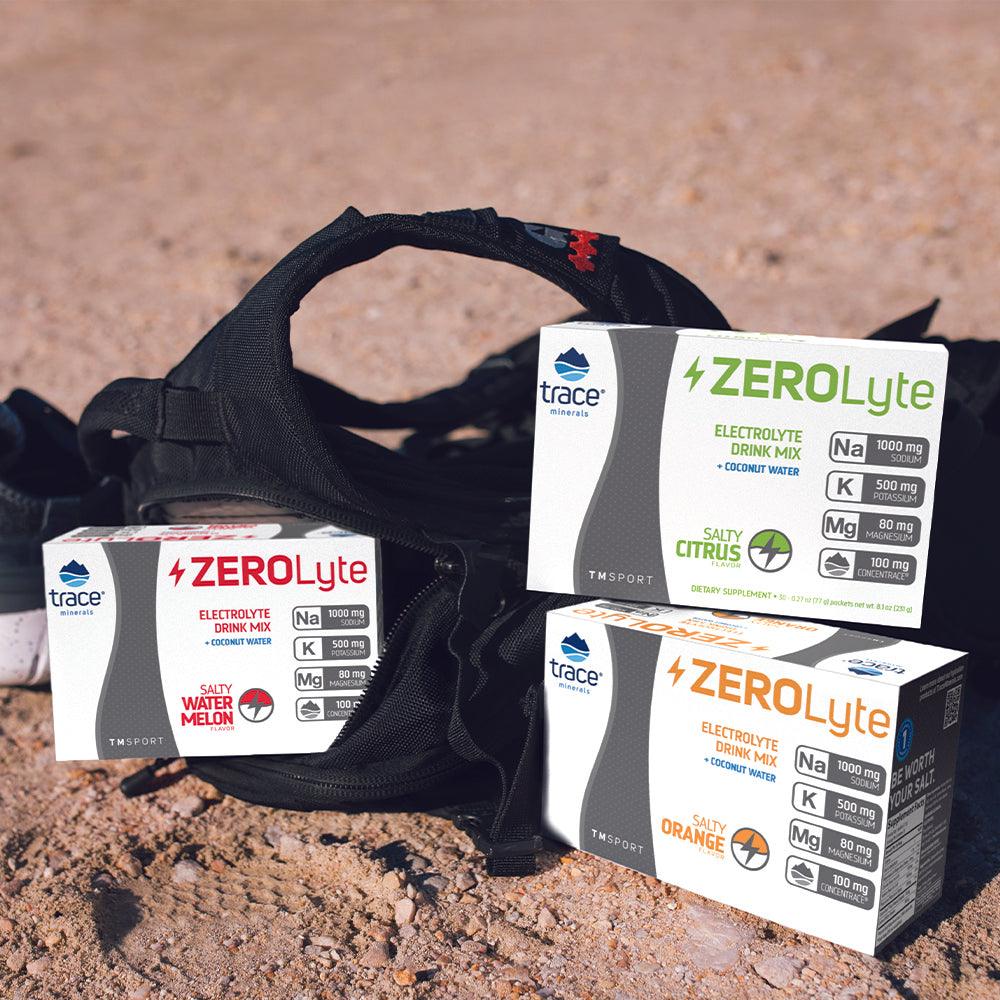Chris D. Meletis, N.D.
Collagen is the most abundant protein in the body, and it’s the building block of connective tissues like skin, muscles, bone, tendons, and ligaments. You need collagen for your joints to feel healthy, your skin to stay smooth and hydrated, and to keep your intestinal lining strong. Unfortunately, collagen declines with age, with total body collagen losses of up to 75% by age 80.1 But collagen doesn’t work on its own. It needs certain nutrients to boost its production in the body.
In this article, I’ll address the benefits of supplementing with collagen peptides and the nutrients that work synergistically with collagen peptides to increase their effectiveness.
Types of Collagen
There are different types of collagen, as many as 28 different types. Type 1 is the most common form of collagen in the body. It’s packed tightly together and supports your skin, bones, tendons, and ligaments. It makes up 90% of the body’s collagen. Type III collagen is also important. It’s found in arteries, muscles, and organs.
Signs of Collagen Deficiency
If you’re wondering, “how do I know if I need a collagen supplement?” you can tell by noticing the signs of collagen deficiency. These include the following:
- Wrinkled, sagging, or “crepe” skin
- Stiff or painful joints
- Hollows around your eyes
- Weak and aching muscles
- Less flexibility in your tendons and ligaments
- Gastrointestinal challenges
- Reduced blood flow
Let’s take a look at collagen’s effects on health more closely.
Collagen and Joint Health
Supplementation with collagen can support healthy joint function. For example, in a study of healthy people who were suffering from knee joint pain after strenuous exercise, taking collagen supplements for 120 days led to the subjects being able to exercise longer before experiencing joint discomfort.2
Another study of 191 subjects found that collagen supplements were associated with significantly improved pain, stiffness, and physical function compared with a placebo or glucosamine/chondroitin supplements.3
In a double-blind, randomized, controlled study of active, middle-aged adults, collagen peptide supplementation led to improvements in activities of daily living.1 In the subjects who exercised the most, collagen peptide supplements also resulted in reduced pain. Furthermore, mental health improved in the participants given collagen peptides.
The Role of Vitamin C
Vitamin C is important for collagen synthesis and as such, plays an essential role in the healing of connective tissues. Having adequate vitamin C has been shown to support the healing of tendons, which are 60% to 85% collagen, while vitamin C deficiency suppresses the repair of injured tendons.4 In animal studies, vitamin C supplementation supports bone healing, increases type 1 collagen synthesis, and reduces oxidative stress. Combining vitamin C with collagen supplements has been shown to improve exercise strength and performance in athletes.5
The Secret to Smooth Skin
During aging, collagen fibers become thicker and shorter and type I collagen declines. We start to lose collagen as early as age 20, and by age 50 the collagen level in our skin declines by about 25%. Collagen deficiency in the skin during aging occurs due to many factors including aging itself, exposure to ultraviolet radiation, poor diet, stress, and micronutrient deficiencies.6 Collagen maintains skin structure and function and as a result, its loss during aging leads to reduced elasticity, poor skin tone, increased wrinkles, sagging eyelids, and bags under the eyes.7
Collagen supplements improve skin moisture, help maintain elasticity, and reduce the appearance of wrinkles. For example, in one study of 52 volunteers given either a hydrolyzed collagen supplement or a placebo, collagen supplementation was associated with improved skin moisture, better elasticity, and smoother skin.7 Hydrolyzed collagen consists of small, low molecular weight peptides that are easily digested, absorbed, and distributed in the human body.7
Strengthening the Intestinal Lining
Collagen is also important for digestive health and for strengthening the intestinal lining, known as the intestinal epithelial cell layer.8 This protective barrier keeps harmful molecules from permeating the intestinal barrier while at the same time supporting nutrient and water transport.
Collagen peptides can potentially maintain or support the intestinal barrier or repair intestinal mucosa dysfunction by such means as regulating intestinal immune reactions and reducing oxidative stress.8 Collagen peptides also may influence the functions of tight junction proteins,8 which serve as gatekeepers to allow the passage of beneficial substances such as water and ions and prevent the release of pathogenic substances into the systemic circulation. Collagen’s strengthening of the intestinal lining leads to reduced intestinal permeability, also known as leaky gut.
Synergistic Support with a Superior-Quality Collagen Supplement
Other nutrients besides vitamin C are necessary for the body to process collagen. That’s why Trace Minerals’ Collagen Peptides formula includes hydrolyzed collagen and vitamin C along with several other vitamin and mineral cofactors that aid in absorption, such as magnesium, zinc, copper, and manganese.
Collagen is made from the amino acids proline, glycine, and hydroxyproline, which clump together to form protein fibrils in a triple-helix structure. Optimal amounts of vitamin C, zinc, copper, and manganese are needed to make the triple helix. Without these nutrients, collagen synthesis couldn’t occur.
Zinc is especially important to collagen synthesis. Experimental research has shown that intramuscular administration of zinc beginning before trauma leads to increased collagen accumulation.9 Other research indicates that the mechanism by which zinc is involved in bone formation is partly due to its ability to stimulate collagen synthesis.10
Not only does Trace Minerals’ Collagen Peptides contain minerals and nutrients to support the body’s natural connective tissue health, it was developed with purity in mind. It’s hormone-free, pasture-raised and grass finished, non-GMO, and free of fillers and flow agents.
References:
- Kviatkovsky SA, Hickner RC, Cabre HE, Small SD, Ormsbee MJ. Collagen peptides supplementation improves function, pain, and physical and mental outcomes in active adults. J Int Soc Sports Nutr. 2023;20(1):2243252.
- Lugo JP, Saiyed ZM, Lau FC, et al. Undenatured type II collagen (UC-II®) for joint support: a randomized, double-blind, placebo-controlled study in healthy volunteers. J Int Soc Sports Nutr. 2013;10(1):48.
- Lugo JP, Saiyed ZM, Lane NE. Efficacy and tolerability of an undenatured type II collagen supplement in modulating knee osteoarthritis symptoms: a multicenter randomized, double-blind, placebo-controlled study. Nutr J. 2016;15:14.
- Noriega-González DC, Drobnic F, Caballero-García A, Roche E, Perez-Valdecantos D, Córdova A. Effect of Vitamin C on Tendinopathy Recovery: A Scoping Review. Nutrients. 2022;14(13).
- Lis DM, Jordan M, Lipuma T, Smith T, Schaal K, Baar K. Collagen and Vitamin C Supplementation Increases Lower Limb Rate of Force Development. Int J Sport Nutr Exerc Metab. 2022;32(2):65-73.
- Bolke L, Schlippe G, Gerß J, Voss W. A Collagen Supplement Improves Skin Hydration, Elasticity, Roughness, and Density: Results of a Randomized, Placebo-Controlled, Blind Study. Nutrients. 2019;11(10).
- Bianchi FM, Angelinetta C, Rizzi G, Praticò A, Villa R. Evaluation of the Efficacy of a Hydrolyzed Collagen Supplement for Improving Skin Moisturization, Smoothness, and Wrinkles. J Clin Aesthet Dermatol. 2022;15(3):48-52.
- Song W, Chen Q, Wang Y, Han Y, Zhang H, Li B. Identification and Structure-Activity Relationship of Intestinal Epithelial Barrier Function Protective Collagen Peptides from Alaska Pollock Skin. Mar Drugs. 2019;17(8).
- Tengrup I, Ahonen J, Zederfeldt B. Influence of zinc on synthesis and the accumulation of collagen in early granulation tissue. Surg Gynecol Obstet. 1981;152(3):323-326.
- Seo HJ, Cho YE, Kim T, Shin HI, Kwun IS. Zinc may increase bone formation through stimulating cell proliferation, alkaline phosphatase activity and collagen synthesis in osteoblastic MC3T3-E1 cells. Nutr Res Pract. 2010;4(5):356-361.






